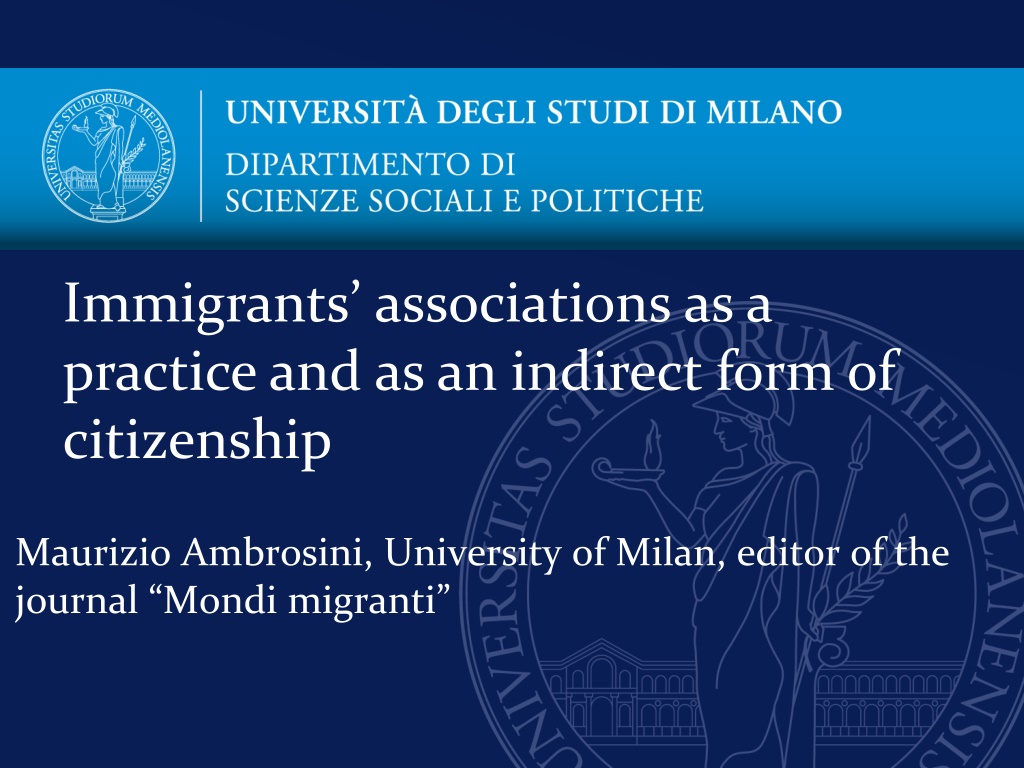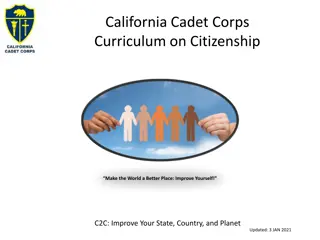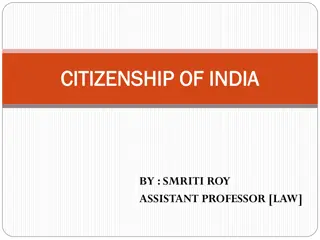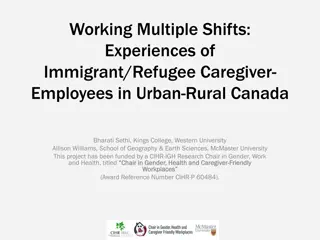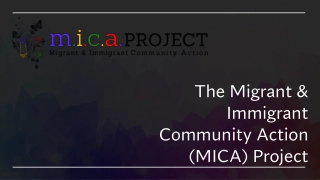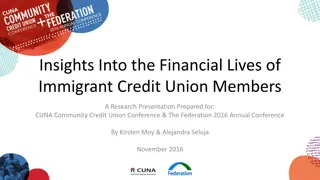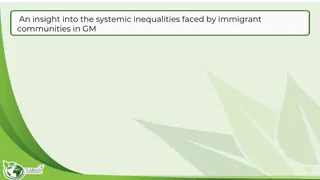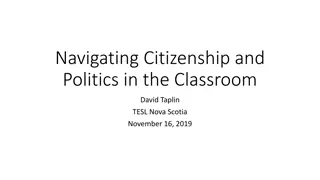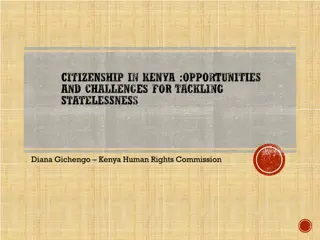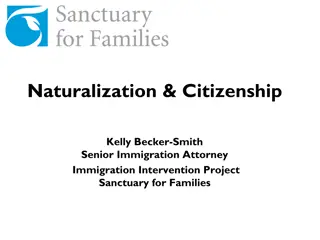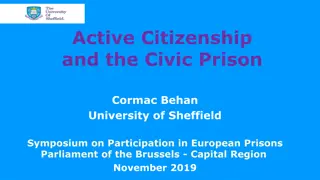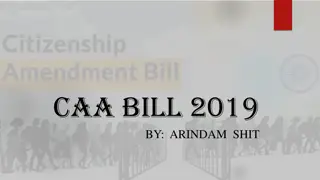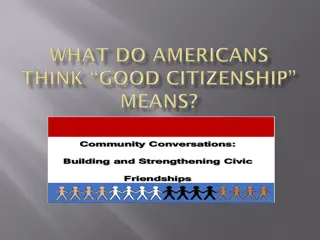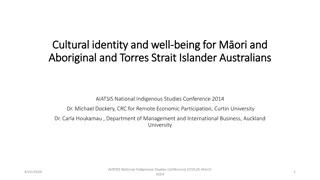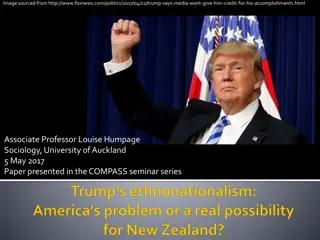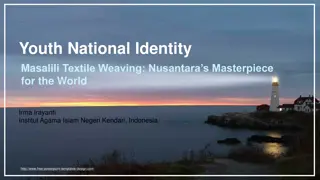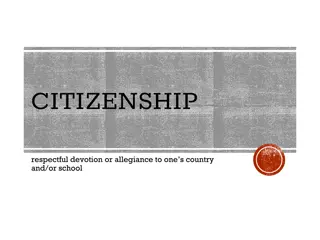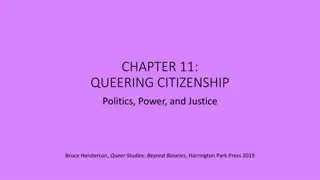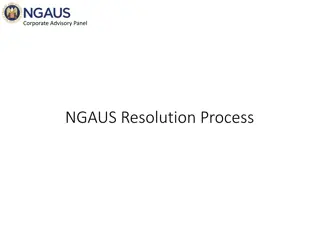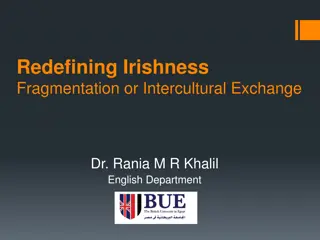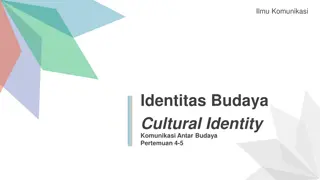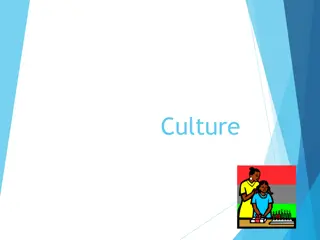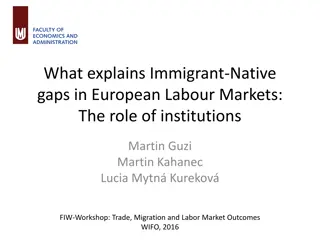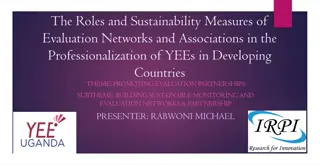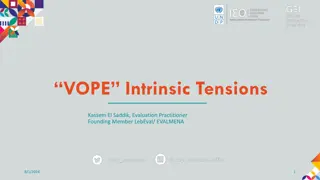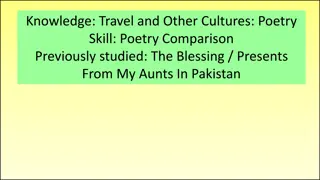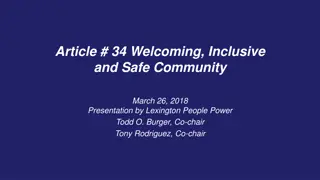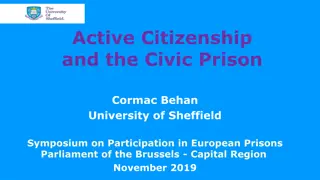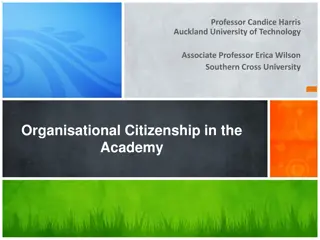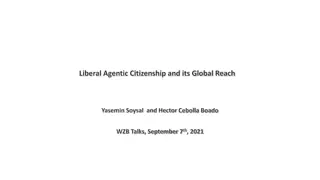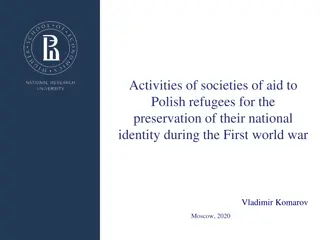The Role of Immigrant Associations in Citizenship and Cultural Identity
Immigrant associations serve as a practice, providing a platform for expressing needs and defending cultural backgrounds. These groups play a vital role in citizenship, political engagement, and social integration by fostering mutual support, preserving cultural heritage, and promoting local identity. Through these associations, immigrants can actively engage in society, access resources, and contribute to their communities both locally and globally.
Download Presentation

Please find below an Image/Link to download the presentation.
The content on the website is provided AS IS for your information and personal use only. It may not be sold, licensed, or shared on other websites without obtaining consent from the author. Download presentation by click this link. If you encounter any issues during the download, it is possible that the publisher has removed the file from their server.
E N D
Presentation Transcript
Immigrants associations as a practice and as an indirect form of citizenship Maurizio Ambrosini, University of Milan, editor of the journal Mondi migranti
Immigrants associations and citizenship Through associations, as in the case of trade- unions, immigrants can express their claims and needs They can protest against discrimination and defend their cultural background As detected in religious communities, they can exercise active roles and access responsibilities and leadership Social and human capital acquired in associations can be useful to political careers
Why immigrants gather in associations? A universal and long-standing social phenomenon, if when political conditions allow immigrants to meet up Mutual support Socializing and leisure Memory and attachment to the homeland Claims for cultural citizenship : recognition and respect for their cultural heritage
Reactive identifications Emigration brings people in contact with different cultural identities, customs and ways of life This fact often triggers a claim, and even a discovery, of their own cultural belonging, language, historical heritage Also rivalry with other immigrants groups favours gathering in national and regional associations
Attachment to local identity Often immigrants, if numbers and concentration allow, gather in associations which recall specific local or regional identities (in Italian: campanilismo ) It becomes easier to recall links, memories and belonging
Hometown associations A typical consequence of local attachment is the development of hometown associations They are tipically committed in collecting funds to help the places of origin of immigrants: restoration of schools, construction of playgrounds, renovation of religious buildings Since some years, they have become partners of projects of co-development: donors foster, and sometimes require, a commitment by migrants associations in local projects
Immigrants associations and politics In general cultural and local associations are not involved in the political game: they fear the danger of internal divisions But the growing awareness of discrimination and mistreatment pushes towards forms of protest and political engagement Acquisition of voting rights makes immigrants associations a target for electoral campaigns
Political involvement with the homeland In several cases immigrants associations have been favoured by the consulates of the country of origin, and they have connections with the government (Eritreans in Italy, Armenians in the world) In other cases, they have been founded by opponents of the government (Cubans in Miami) In recent years, the opportunity of voting from abroad has increased the political importance of immigrants associations for the internal politics of the homeland
Clientelism When immigrants can vote, they discover to have become interesting for candidates and parties They can exchange their support with funds, jobs, building licenses, and other benefits This has often been the way through which immigrants associations have entered the political game
Multiculturalism and immigrants associations Under multiculturalist approaches, immigrants associations have been considered the best way to reach immigrants, especially newcomers, and serve their specific needs It has been also the way to recognize the role of immigrants leaders, to have interlocutors in negotiations Often immigrant associations provide services of intercultural mediation
Immigrants associations in Italy In Italy immigrants associations are still weak, fragmented, mainly local, with a high turn-over They are often established under the impulse of local authorities, parties, trade-unions Lack of voting rights makes more difficult to obtain political support and funds Second generations are much more active in developing associations and political activities
Conclusion In the case of immigrants 'associations, associations allow several forms of indirect and practical citizenship They can advance claims and protest in defence of immigrants rights, establishing connections with other social and political actors They favour forms of mutual support (internal solidarity) and promote active roles They foster cultural identification and pride They have acquired a higher importance in the homeland: voting rights and hometown associations
